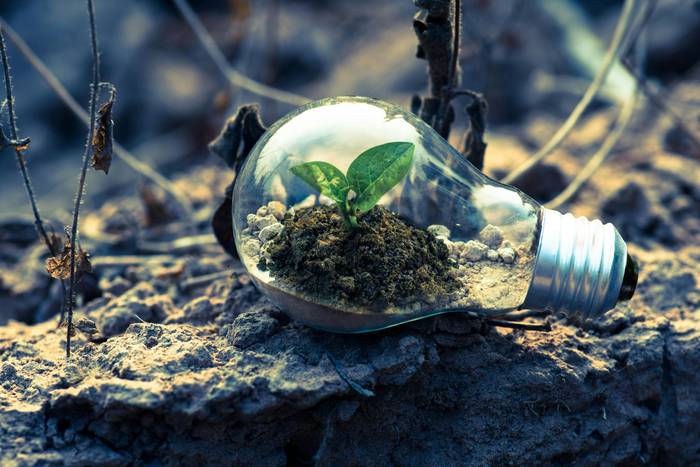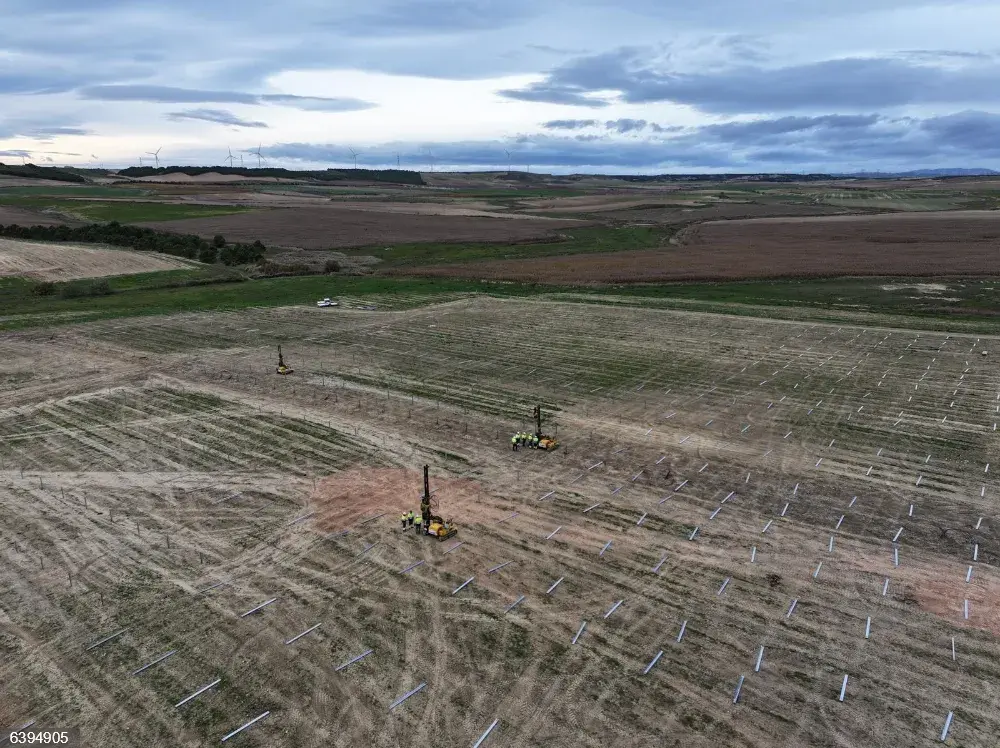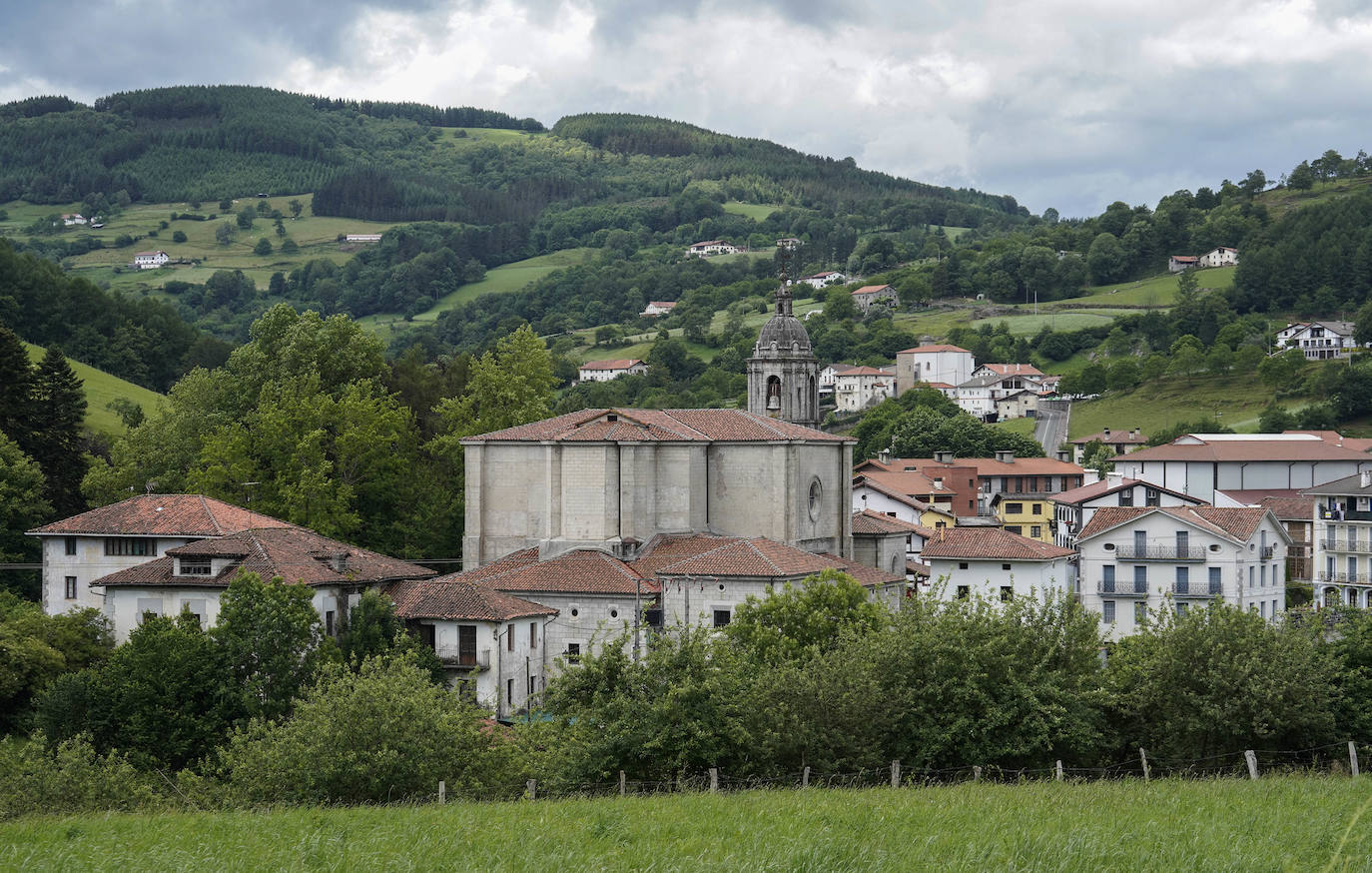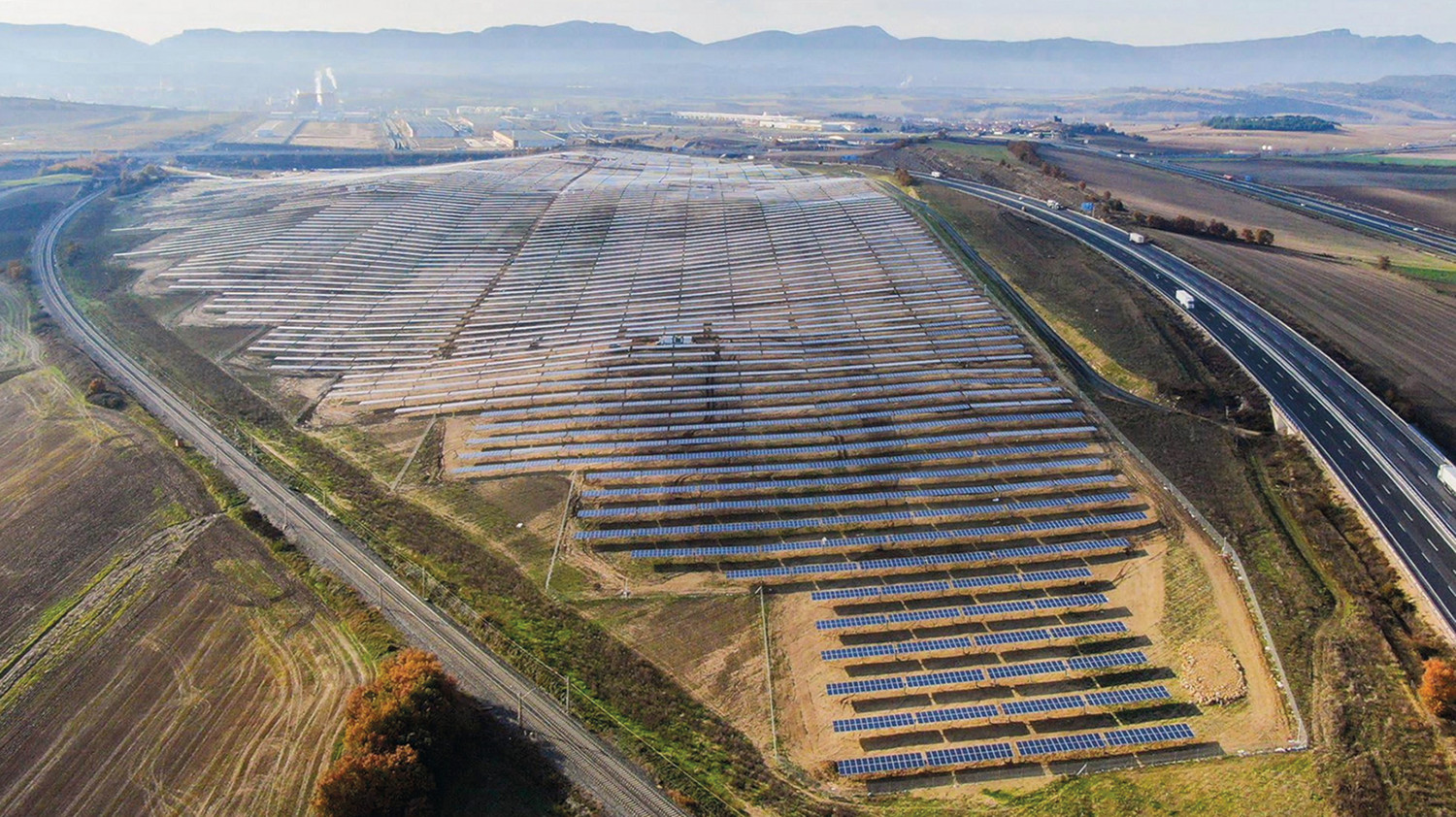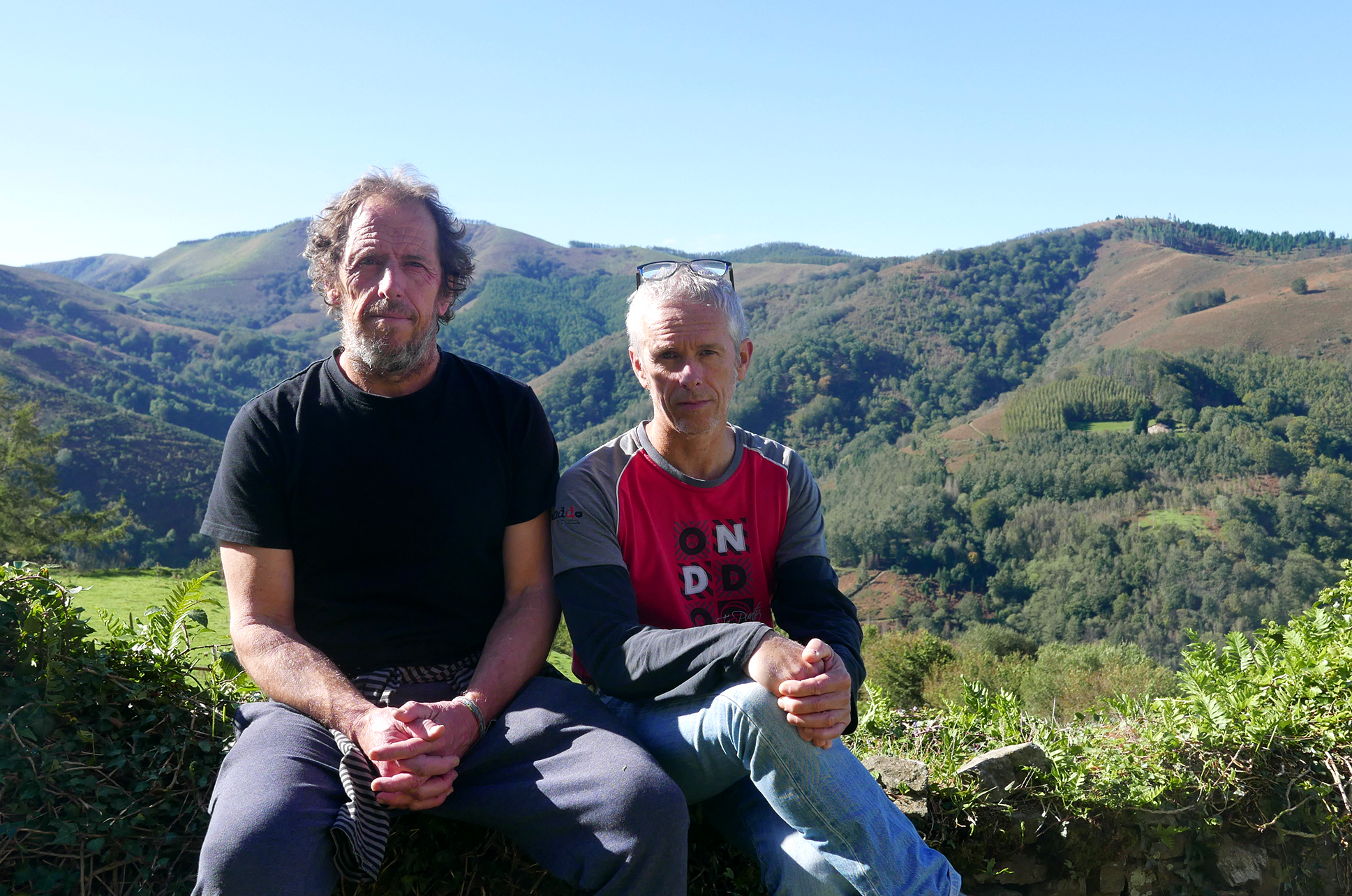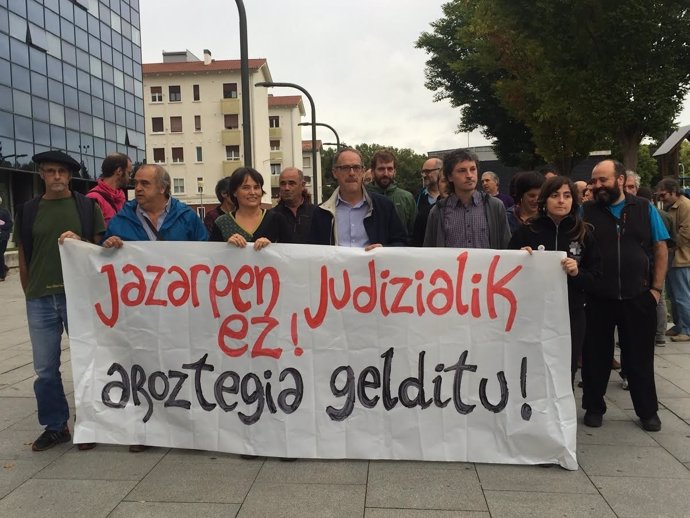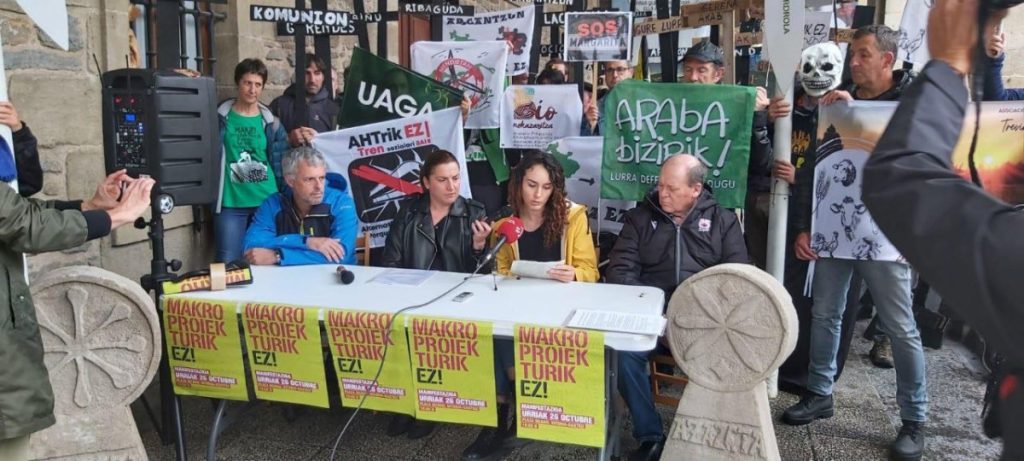
We met Victor Paco to talk about the E-CHO project, still too unknown. He is a well-known ecologist in the Northern Basque Country, who has been leading the CADE environmental partnership for years. At the end of last year, a new framework was opened for fighting him and other environmentalists in the area: Macroproject E-CHO for the production of hydrogen and biofuels in the town of Lacq, in Biarno, near Zuberoa. Elyse Energy is a French company specialising in the production of low carbon fuels.
Electrolysis is a fundamental step in obtaining hydrogen: it is a process of distribution of components of a substance through electricity, for example in the case of water, separating hydrogen and oxygen. The space for electrolysis they plan to build in it would have a grandeur of 30 hectares, the largest in the world today in China and double. From there, 72,000 tons of hydrogen is produced annually. "Disproportionate" according to
Pachau.El debate on energies classified under the label "green energy" begins with the observation of the energy need used in the hydrogen generation process. In fact, thanks to the biomass obtained by cutting millions of Pyrenean trees or by obtaining electricity from nuclear. The issue is still "absurd" with the knowledge that, ultimately, the aircraft and the ship will use the result to operate with "green fuel". In fact, this hydrogen will be exploited by the Biotjet and eM-Lacq plants, which will be installed in the village of Lacq, to produce kerosene for aircraft and ship methanol. If we look at the data from Elyse Energy, we see that the energy used between the three sources would be 1.8 times higher than the energy generated, not counting the transport. "Useless and absurd," according to Pachau.
They would cut 14,000 hectares of forest in the first five years and then disappear 1,170 hectares every year in
Victor Pachón
What is hidden behind the E-CHO macro-project is manifested in public sessions, CADE and 59 other opposing structures. In April they were in Baja Navarra, Aiherra and Donapaleu, and on 7 June they traveled to Zuberoa, Maule. First, it focuses on the huge amount of biomass needed to produce energy: They would cut 14,000 hectares of forest in the first five years and then disappear by 1,170 hectares each year. The population of Lacq is dominated by about 200 kilometres of trees, i.e. the forests of Iparralde. The 20,000 hectares of Irati would disappear for fifteen years.
When looking at similar projects in the French State, Pachau is clear about the future: "They will finish importing trees from the Brazilian Amazon or Canadian primary forests, in all their detail." Ecologists are concerned about the massive cuts in industrial forest management. Today this type of court is not prohibited by the government and, in essence, Elyse Energy recognizes that it is "incapable" of withdrawing it.
Pachau defends "ignorance": we do not know what variety of trees they will use, whether they will go to private or public forests... In general, there are few data and investigations that appear in the official documents of the company: "The public survey is scheduled for December and should make available to the Byzantine a fortnight of poor studies, including the carbon pool or the socio-economic impact."
The opposite movement says that promoters have a "reduced and wrong" view of the jungle. In fact, they have it as a natural good that's constantly being renewed, but they say that character is from the past. "In the last two decades there has been a strong growth of the forest, especially in public forests, but in recent years the trend has changed, as trees are more vulnerable by climate change or by massive logging. They have calculated according to the numbers twenty years ago, but that's not worth it," says Pachau. Climate change has caused the mortality of indigenous trees to have increased by 80 per cent over the past ten years, according to the structure of the French Forest Inventory. "When more and more fires are destroying the planet's green lungs and the climate is getting warmer, how can we pretend to destroy the latest carbon wells to produce the kerosene of aircraft? ", can be read at the moment in the petition signed by 12,400 citizens.
Important carbon wells make forests more necessary than ever before, and should be of protection and conservation. But no: the authorities are moving in the direction of deforestation and so, according to data from the Superior Climate Council, the forests of the French State absorb twice less carbon than ten years ago. On the contrary, they also release some of the CO2 buried by human activity, both by deforestation and by manipulating these lands. Nature Climate Change magazine states that global forests absorb 16 billion tons of CO2 a year, but release another 8.100 million tons. Pachau states that all this should be taken into account when developing the carbon bilan of the macro-project E-CHO.
“We want to live like before, but things have changed and we have to project ourselves in the future: it is time to acquire the condition of disability”
Victor Pachon
In addition to forest biomass, they also seek to obtain energy from crops and from the recovery of green waste. Pachau makes it clear: "Are you going to recover green garbage one by one? Old fences there and broken pallets here? No, this would be a significant cost and they want to reduce it. Forest biomass will prioritize the most interesting production cost." It also warns of the existence of a local industry that supports this recovery. As far as selviculture is concerned, as there has long
been a local economy, a macro-project of these characteristics would unbalance it todo.Ademas, Pachau also includes a space to explain the collateral damage of the orientation of cultivation towards biomass production: on the one hand, ecologists oppose food expenditure as a source of energy and, on the other, believes that it can be a stimulus for the agricultural development. Instead of associating the food that the climate emergency requires of us to the brave relatives of sovereignty and agroecology, the E-CHO would mean breaking the problem.
The leaders of the Elyse Energy group mention the climate challenge of getting out of fossil fuels. "Yes, but not at all costs," ecologists say. At the bottom, Paco says there is an attitude to not changing things: "We want to live like before, but we are no longer in the same situation as in the past, things have changed and we have to project ourselves in the future. It's time to acquire deficiency status." This is the question that this kind of mega project raises: we will have to go through the slowdown if we are to achieve a genuine ecological transition.
To carry out this macro-project, it will require the supply of 7.7 million cubic meters of water per year. It is concerned about the need for the Water Agency Aturri Garona itself to add the 14.3 million cubic metres used each year by the Lacq industrial area. It is not usual for this structure to make its opinion public, but in this period it has not been able to remain silent. The increase in the uptake of 65.47% would produce alterations and damage in the ecosystem of the region's regatta. Nor are the doubts about the water that will be poured back from factories typical: will they be contaminated? Will the water temperature be appropriate for the local ecosystem?
The E-CHO opposes political decisions to adapt the climate to the emergency, knowing that local institutions seek to reduce water consumption to combat constipation. For the Aturri basin, annual water consumption has been set at 37 million cubic metres by 2030. An essential step, knowing that by 2050 a water deficit of 1.2 billion cubic meters is expected.
“They are financial. They have seen that there is a possibility of making roses, they are running subsidies for carbonless energies”
Victor Pachon
Flight from green public money
It is clearly a macro-project that follows the logic of the French Government. The development of the exploitation of forest biomass is part of the National Low Carbon Strategy agreed with the objective of tapping greenhouse gas emissions, with an increase of 70% by 2050. However, the Ministry of the Environment itself acknowledges that the strategy is not viable, as there are not enough trees to achieve decarbonisation along this path. The development of the hydrogen industry is also one of the strategic objectives of Paris. In 2021, President Emmanuel Macron set the goal of becoming "leaders" in green hydrogen, putting EUR 7 billion into this strategic plan. It also seeks the "development of ultra-fast aviation". Between 2024 and 2030, the French Government will spend EUR 300 million each year on this "green sector".
Pachau does not believe in the good faith of the representatives of Elyse Energy: "They're financial, they want easy money, and they see there's a chance to make roses. Subsidies for carbonless energy are running away." The eM-Lacq, Hylacq and Biojet factories, within the E-CHO project, are planned for the year 2027. In Bizkitarte, the CADE Association is making known what has joined public sessions, reservations and silence: "The public survey of the project will be launched in December. In the meantime, we will be informing citizens, so that we connect to mobilizations when necessary."
Apiril hastapen honetan hasi da Zuberoako eta Biarnoko lurpearen ikertzen TBH2 Aquitaine deitu enpresa. Jakin nahi du hidrogeno naturalik baden lurpe horietako geruzetan. Iragan uztailean pausatu zuen ikerketarako baimena eta Frantziako Gobernuak onartu berri dio. Hidrogenoaz gain, helioa eta bestelako substantzia batzuen presentzia ikertzen ariko da ondoko asteetan. Ikerketa sismikoak, geokimikoak eta beste hainbat neurketa zientifiko egitekoak ditu. Horrelakorik atzemanez gero, zulaketetarako baimena galdetu beharko dio gobernuari. Baietza ala ezetza jaso bitartean, herritarren, hautetsien eta lekuko eragileen kontsulta bideratu beharko du enpresak. 45-8 Energy enpresak ere baimen bera galdetua dio gobernuari. Bereziki Zuberoa trabeskatzen duen Uhaitza ibaiaren inguruak eta Baxenabarreko zein Biarnoko zenbait herri ditu begibistan.
Hidrogenoaren aldeko apustu argia egin du Frantziako Gober- nuak. Hidrogenoaren Kontseilu Nazionala ere sortu du estrategia hori gidatzeko eta kontseilu horretan dira, besteak beste, Total eta Engie multinazionalen ordezkariak. Preseski, 45-8 eta TBH2 Aquitaine enpresek loturak dituzte nuklearraren eta erregai fosilen sektoreko bi enpresa erraldoi horiekin.
Naturalki lurpean dagoen hidrogeno hori "hidrogeno zuri" gisa sailkaturik da. Koloreka banatua da hidrogenoa: zuria –naturan kausitzen dena–; berdea –energia berriztagarrien bidez lorturikoa–; grisa –erregai fosilen bidez sorturikoa–; urdina –grisaren moduan lorturikoa, baina ondorioztaturiko CO2a lur azpian metaturik duena–; horia edo arrosa –energia nuklearrari esker produzitutakoa–; marroia edo beltza –ikatzaren bidez lorturikoa–.
Environmental activist Mikel Álvarez has produced an exhaustive critical report on the wind macro-power plants that Repsol and Endesa intend to build in the vicinity of Arano and Hernani of the region. In his opinion, this is "the largest infrastructure of this kind that is... [+]











